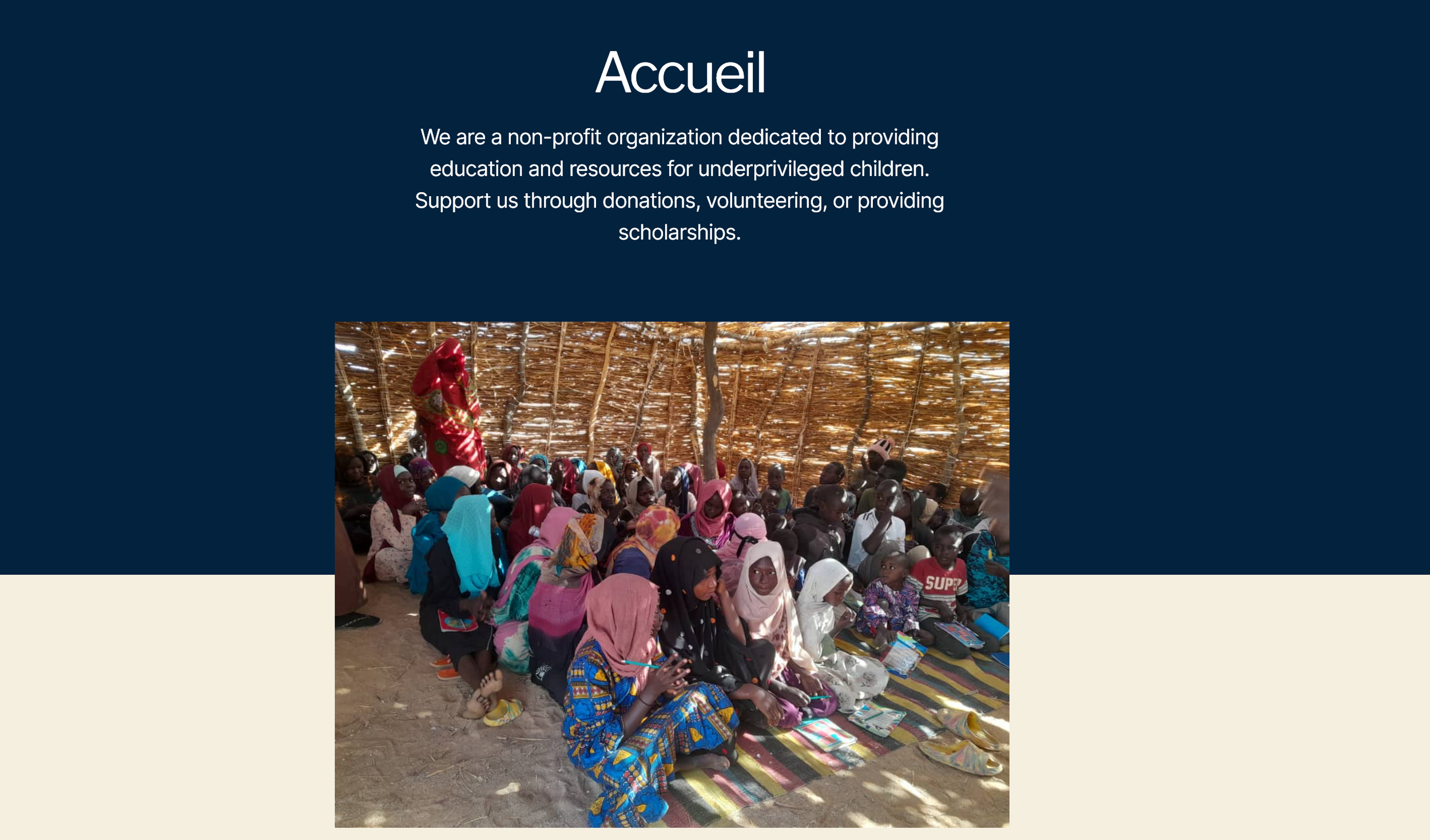From Refugee to Advocate: Magdi Masaraa's Journey of Hope and Empowerment
30 October 2024
"If we empower communities to resolve their issues locally, we reduce the burden on host nations and give displaced people the dignity of self-reliance."
Magdi Masaraa
In 2016, Magdi Masaraa arrived in France, leaving behind a life marked by conflict in Western Darfur, Sudan. Today, he leads Durmongaa Education pour Tous, an NGO he founded in Paris with a simple yet profound mission: to help displaced children return to school. His story is a testament to resilience and a deep belief in the transformative power of education.
Magdi’s early years were consumed by the violence that engulfed Darfur in 2003 when he was just 13. Forced to flee his home, he spent his adolescence and young adulthood navigating exile alone, with no family to lean on. Survival, rather than education, was his immediate priority. Yet, his experiences planted the seeds of a profound realization: education could break the cycle of violence and poverty that traps so many displaced children.
“Growing up as a displaced child, I was responsible for myself and my family,” Magdi shares. “Education was never an option for me during those years. But I always wondered—what if it had been?”
Magdi’s own higher education journey began in earnest at the age of 29 when he enrolled in the Certificate for Young Refugees program at Sciences Po in Paris, focusing on social sciences studies. “It was my first time entering an academic environment,” he recalls. “It felt like a personal revolution.”
This academic exposure not only opened doors for him professionally but also inspired him to reflect on the inequities faced by others who, like him, lacked access to education. It became clear to Magdi that his success could only be meaningful if it paved the way for others.
“Education is the key,” Magdi asserts. “It’s what transforms a mind from seeing violence as the only solution to seeking peace through dialogue and critical thinking.”
“These children represent who I was. If they are given a chance, they can rise above their circumstances.”
While studying Social Sciences at the University of Paris, Magdi began conceptualizing the Durmongaa Association. The NGO focuses on providing educational opportunities to children in displacement and conflict zones, particularly those who have been denied the chance to attend school. For Magdi, this work is deeply personal: “These children represent who I was. If they are given a chance, they can rise above their circumstances.”
Durmongaa’s mission is ambitious. It not only seeks to enroll children in school but also to foster environments where education can thrive despite adversity. Magdi envisions a future where education drives peace, empowering young minds to address the challenges in their communities rather than fleeing from them.
Magdi’s experience as a refugee and migrant informs his critique of the current global response to displacement. He emphasizes the need for a more humane approach to integration and policy-making.
“We must see refugees as humans, not just as statistics or problems to solve,” Magdi says. “Discrimination stems from seeing identity rather than humanity. Decision-makers must focus on local solutions as much as international resettlement.”
“The most important thing is to consider this person as a human, not just as a refugee. If we start to see it as a humanitarian problem, we can resolve the discrimination in employment, reintegration, and administration.”
He advocates for greater investment in educational and professional initiatives both in emisor and host countries. “If we empower communities to resolve their issues locally, we not only reduce the burden on host nations but also give displaced people the dignity of self-reliance.”
Despite the challenges faced by his country, Magdi remains optimistic about the future. “It’s never too late to make a difference,” he says. “I believe we will see peace one day, but we need wise, educated minds to guide us there.”



